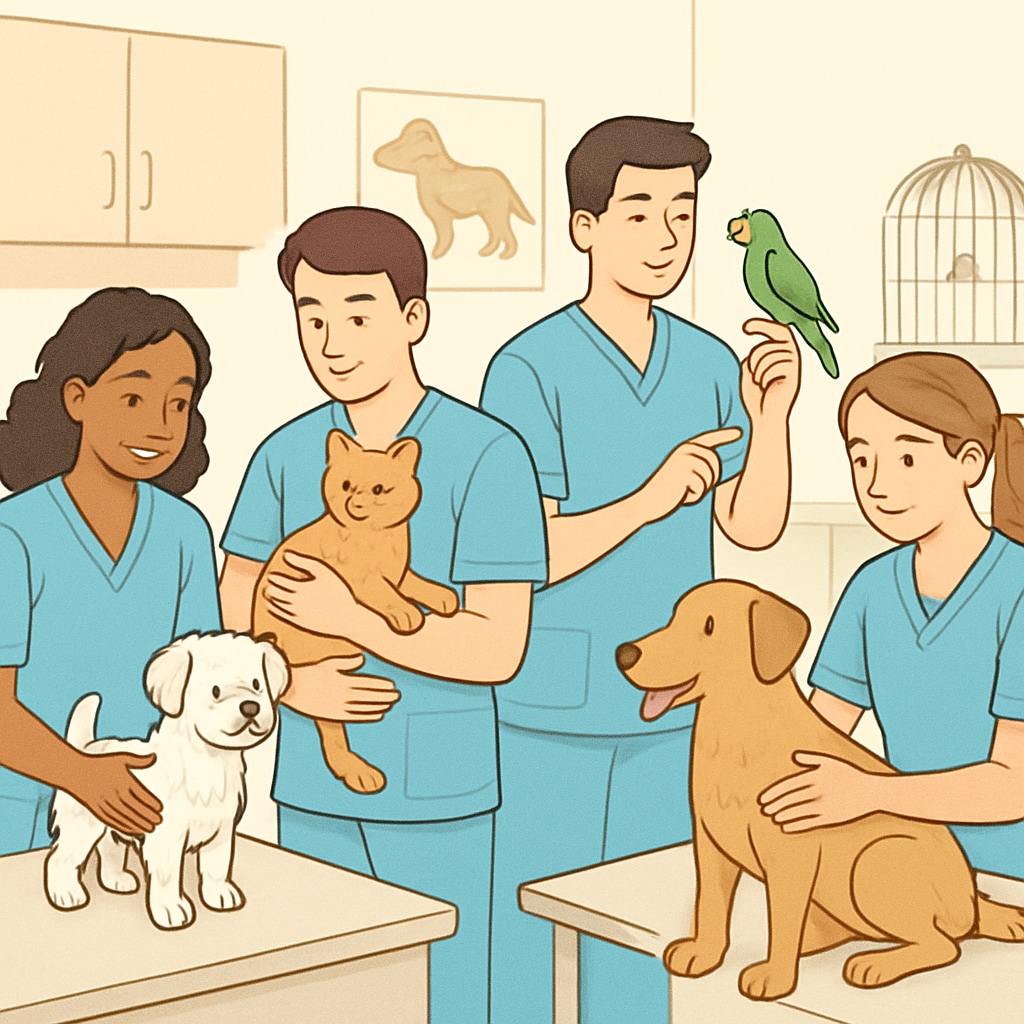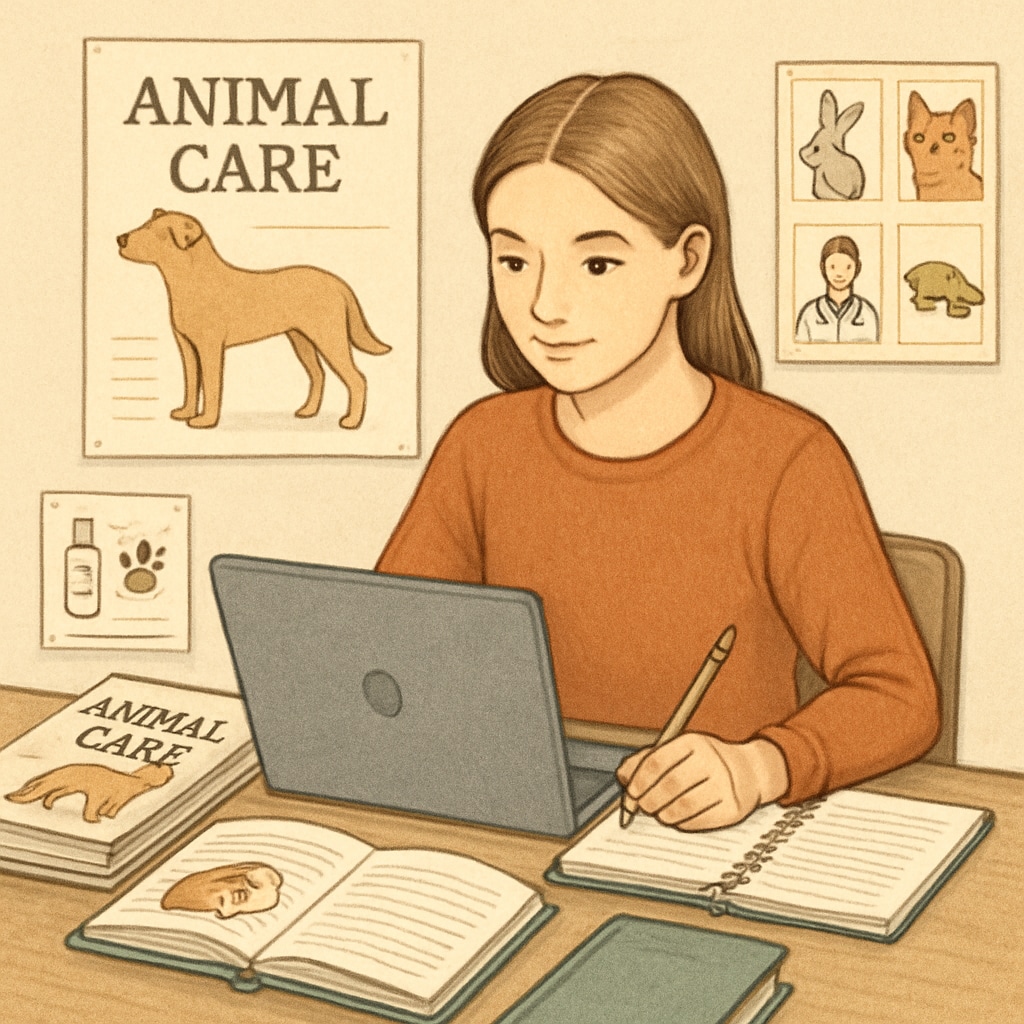Pursuing a career in animal medicine can be a deeply fulfilling journey for those dedicated to the welfare and health of animals. However, many young individuals face systemic obstacles, particularly if they lack GCSE certificates—an entry-level qualification required for many career pathways in the UK. The absence of GCSE credentials often restricts access to traditional education routes, creating barriers for economically challenged yet passionate youth. This article sheds light on these challenges and offers practical solutions and alternative pathways to help aspiring animal medicine professionals achieve their dreams.
Challenges of Pursuing Animal Medicine Without GCSEs
GCSEs (General Certificate of Secondary Education) are often a prerequisite for higher education programs and vocational training in animal medicine. Without these qualifications, young individuals may struggle to access courses, apprenticeships, or employment opportunities in this field. In addition, the stigma surrounding academic underachievement can discourage them from pursuing their aspirations.
These barriers are particularly pronounced for those from economically disadvantaged backgrounds. Limited access to resources, tutoring, or supportive institutions can exacerbate the problem. However, it’s important to note that passion, commitment, and ingenuity can pave the way for success even when traditional qualifications seem out of reach.

Alternative Career Paths for Aspiring Animal Medicine Professionals
For individuals without GCSE certificates, there are several alternative paths to consider. These options allow aspiring animal medicine professionals to gain valuable experience, build skills, and achieve certifications that bypass traditional educational requirements.
- Animal Care Apprenticeships: Many organizations offer apprenticeship programs that do not require GCSEs. These hands-on training opportunities provide practical experience while enabling participants to earn qualifications in animal care.
- Volunteer Work: Volunteering at animal shelters, veterinary clinics, or wildlife conservation centers can help individuals demonstrate their dedication and build a strong portfolio of experience.
- Private Vocational Courses: Some private institutions offer entry-level courses in animal care or veterinary assistance without strict GCSE prerequisites.
- Online Certifications: Platforms like Coursera and Udemy provide affordable online programs covering relevant topics, such as animal behavior, ethics, and basic medical care.
These alternatives allow individuals to showcase their commitment and skills, which can be instrumental in gaining employment or advancing to higher qualifications later.

Practical Strategies to Overcome Educational Barriers
In addition to exploring alternative paths, young people can implement strategies to overcome systemic barriers in their pursuit of animal medicine careers. Here are some practical approaches:
- Networking: Building connections within the animal care industry can open doors to mentorships, internships, and job opportunities.
- Developing Soft Skills: Communication, teamwork, and problem-solving skills are highly valued in animal medicine. Focusing on these areas can enhance employability.
- Seeking Financial Aid: Look for scholarships, grants, or community funding projects that support education and training in animal-related fields.
- Staying Informed: Regularly research institutions, programs, and local opportunities that may offer admission without strict academic requirements.
By adopting these strategies, aspiring professionals can gradually overcome barriers and find their place in the animal medicine field.
Conclusion: Passion Overcomes Barriers
While the lack of GCSE certificates can present challenges, it should not deter passionate individuals from pursuing careers in animal medicine. With dedication, creativity, and resourcefulness, it is possible to explore alternative paths, gain valuable experience, and achieve success in this rewarding field. As the saying goes, where there’s a will, there’s a way—and for those who love animals, the possibilities are endless.
Additional Resources: For more information, visit authoritative sites like Veterinary Medicine on Wikipedia or Veterinary Medicine on Britannica.
Readability guidance: This article uses concise paragraphs, lists for clarity, and accessible language to ensure readability. Transitions and examples are included to maintain flow and engage readers.


